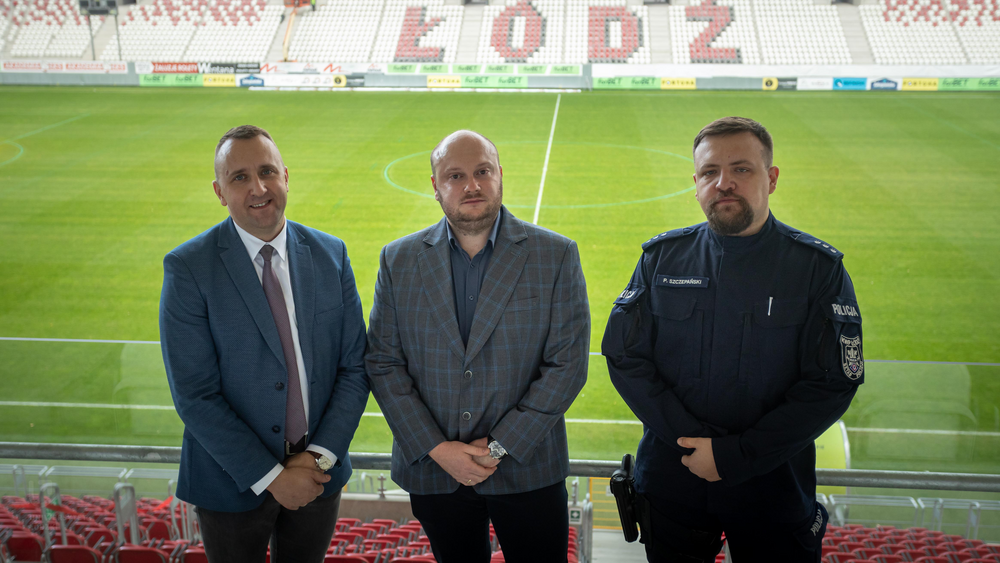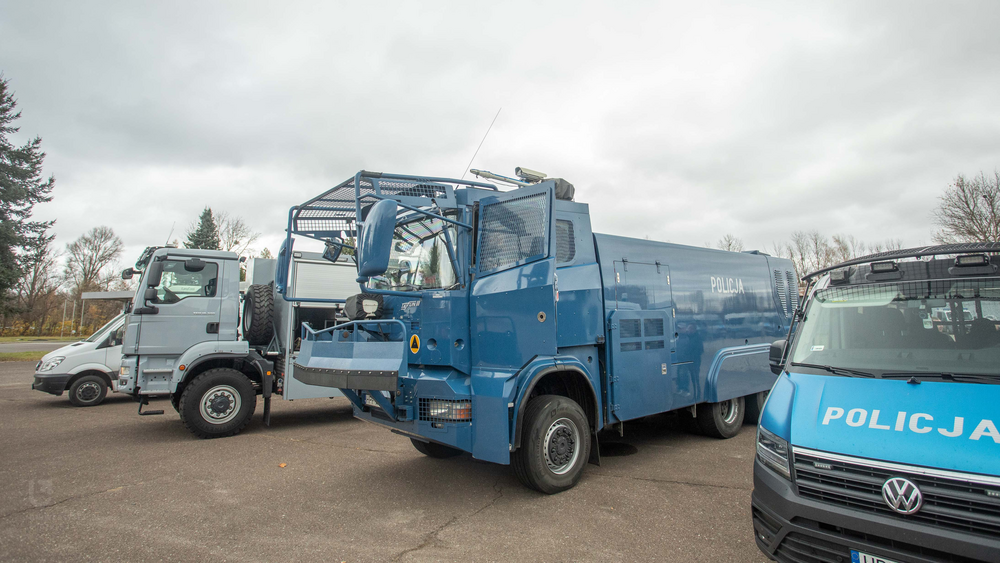In Lodz the experts visited, among others, the Police Prevention Unit at ul. Pienista. They met with persons responsible for the security of the ŁKS and Widzew stadiums as well as with the designers of facilities in line with the "security by design" assumption, which provides for such arrangement of space in the design phase so that it is safe for participants of mass events. Experts from the University of Lodz, MAKiS, the security company SERIS Konsalnet, the Lodz Regional Police Headquarters and the Warsaw Police Headquarters will also look at security measures in practice - during the Sunday match of Widzew with Miedź Legnica.
Real Madrid is also in the consortium
Fourteen institutions involved in the programme of protection against CBRN have created an international consortium Safe Stadium, the works of which are managed by dr hab. Michał Bijak, prof. UL, a biologist from the University of Lodz. Activities of the team are financed by an amount of nearly of nearly €3,400,000 by the European Commission through the Internal Security Fund – Police. The project assumes an audit of selected sports facilities and elaboration of a security system that includes: procedures, equipment, infrastructure, a training with AI components as well as joint exercises in responding to terrorist incidents.
This will be a comprehensive set of recommendations and tools to defend against CBRN threats for mass event organizers
announces prof. Michał Bijak.
During the visits to selected stadiums, the experts will, perform an analysis of the present practices and needs of the sports clubs in terms of security. On this basis, procedures and systems for responding to CBRN threats in these facilities will be developed. The project also includes preparation of special e-learning courses using virtual reality (VR) technology. They are to teach appropriate behaviour in the event of a threat, e.g., a biological one.
The first visit to the Lech Poznań stadium has already taken place. Now experts are working in Lodz. In December, they will visit the stadium in Žilina, Slovakia, and in January, works are planned in the facilities of the famous Real Madrid, which is also one of the project partners.
What is CBRN?
This is an abbreviation from Chemical, Biological, Radiological and Nuclear Defence, denoting defence against chemical, biological, radiological and nuclear threats. It is about taking appropriate actions and protection measures after their occurrence by services, e.g., by the police, fire brigade, army.
CBRN threats may be an effect of terrorist acts or – as in the case of the spread of infectious diseases among event participants – they may appear in large facilities without the intention of infecting others, as is the case during the ongoing COVID-19 pandemic.
An answer to the lack of procedures in sports arenas
In stadiums and other sports facilities in Europe, many procedures have been implemented to deal with conventional threats, such as fire or hooliganism, but there is still lack of contamination management systems. The result of the work of the team led by the scientist from Lodz will be the development of a comprehensive system for recognizing, securing and responding to events caused by CBRN factors.
This includes, among others, equipping facilities with specialized equipment, creating technological solutions, developing sets of inspections and training, as well as procedures for notification, action and cooperation with services in the event of a CBRN incident.
explains prof. Michał Bijak.
The tasks of the University of Lodz, which as an institution coordinates the work of experts, include elaboration of a guide on the principles of evacuation and crowd management, as well as development of rules for the recovery of a facility after contamination.
An international consortium for safe sport
Polish and foreign expert institutions, both private and public ones, participate in the project. Apart from the scientists from the Biohazard Prevention Centre of the University of Lodz, they are: football clubs – Real Madrid, Lech Poznań or MSK Żilina, as well as MAKiS – operator of the Atlas Arena in Lodz and the ŁKS and Widzew stadiums, Polish and Spanish police, Italian Agostino Gemelli University Polyclinic, Slovak International Security and Emergency Management Institute (ISEMI), Spanish National Institute of Aerospace Technology (INTA).
The CBRN security system developed by them is to serve, for example, the Union of European Football Associations (UEFA) and the International Basketball Federation (FIBA), as well as clubs, operators of sports facilities and organizers of mass events, including concerts or fairs.
Source: Biohazard Prevention Centre, UL
Edit: Promotion Centre, UL




